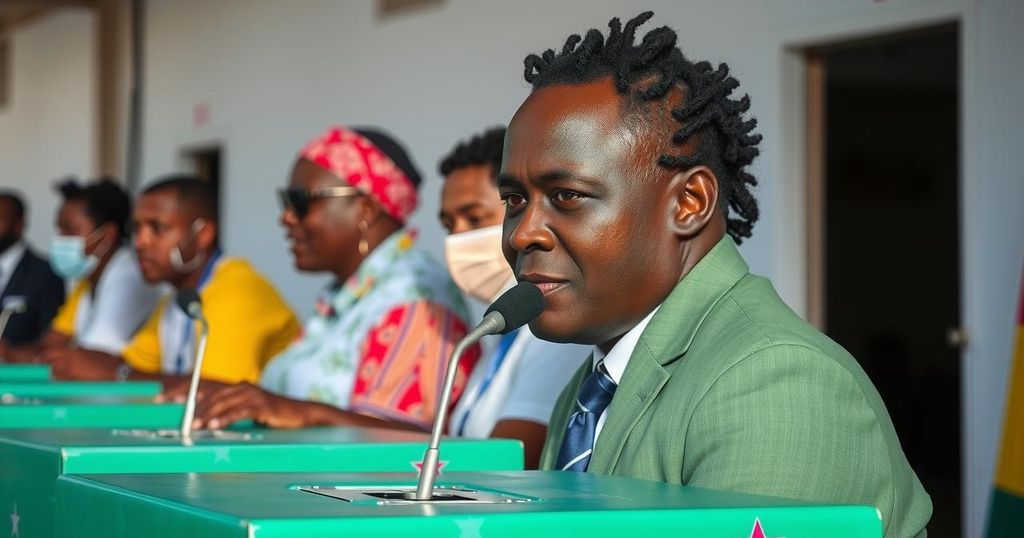Comoros Legislative Elections Marked by Boycott and Controversy

Comoros held legislative elections on Sunday, overshadowed by opposition boycotts citing transparency issues. Nour El Fath Azali, son of President Azali Assoumani, is running in the elections, amid allegations of electoral fraud and growing authoritarianism in the country. Several polling stations faced delays, leading to concerns over the electoral process. The ruling CRC is expected to maintain a strong parliamentary presence.
On Sunday, the nation of Comoros embarked on a crucial electoral process to select lawmakers amidst a widespread boycott by opposition factions, citing a lack of transparency in the voting procedure. Nour El Fath Azali, the eldest son of Comorian President Azali Assoumani, is a notable candidate, seeking election for a constituency near the capital, Moroni. Various polling stations experienced delays in opening, attributed to logistical issues, with one observer remarking on the improvised conditions of the booths, which compromised voter privacy.
The election comes after President Azali’s re-election in January 2024, which was characterized by allegations of fraud and subsequent unrest that resulted in casualties. Critics assert that President Azali is becoming increasingly authoritarian, further exacerbated by the consolidation of power within his family, particularly through Nour’s new role overseeing governmental decrees. Opposition candidates are participating to prevent a repeat of the 2020 legislative election boycott, which had favored Azali’s ruling party, the Convention for the Renewal of the Comoros (CRC).
Out of approximately 340,000 registered voters, 33 parliamentary members are to be elected through a two-round ballot system, with the second round scheduled for February 16. The ruling CRC is anticipated to retain significant parliamentary control, with some candidates facing no electoral challengers. Amid these concerns about the fairness of the voting process, numerous opposition leaders maintain that the elections are manipulated, leading to diminished trust among the populace.
The political climate in Comoros is tense, characterized by ongoing allegations of electoral fraud and authoritarianism under President Azali Assoumani’s administration. Since taking power following a coup in 1999, Azali has faced numerous challenges to his authority, particularly in light of his re-election in 2024, which prompted widespread protests and claims of election rigging. The current legislative elections are seen as pivotal, both to the future governance of the nation and the opposition’s strategy following their previous boycott that led to significant losses in the legislative assembly.
In summary, the recent elections in Comoros illustrate the deepening political crisis characterized by electoral disputes and increasing authoritarian tendencies. With major opposition factions opting to boycott the vote, concerns about the integrity of the process persist, reflecting a troubled democratic landscape. Nour El Fath Azali’s candidacy and the dominance of the CRC in the legislative assembly raise pressing questions regarding the future of governance and political representation in Comoros.
Original Source: www.barrons.com







